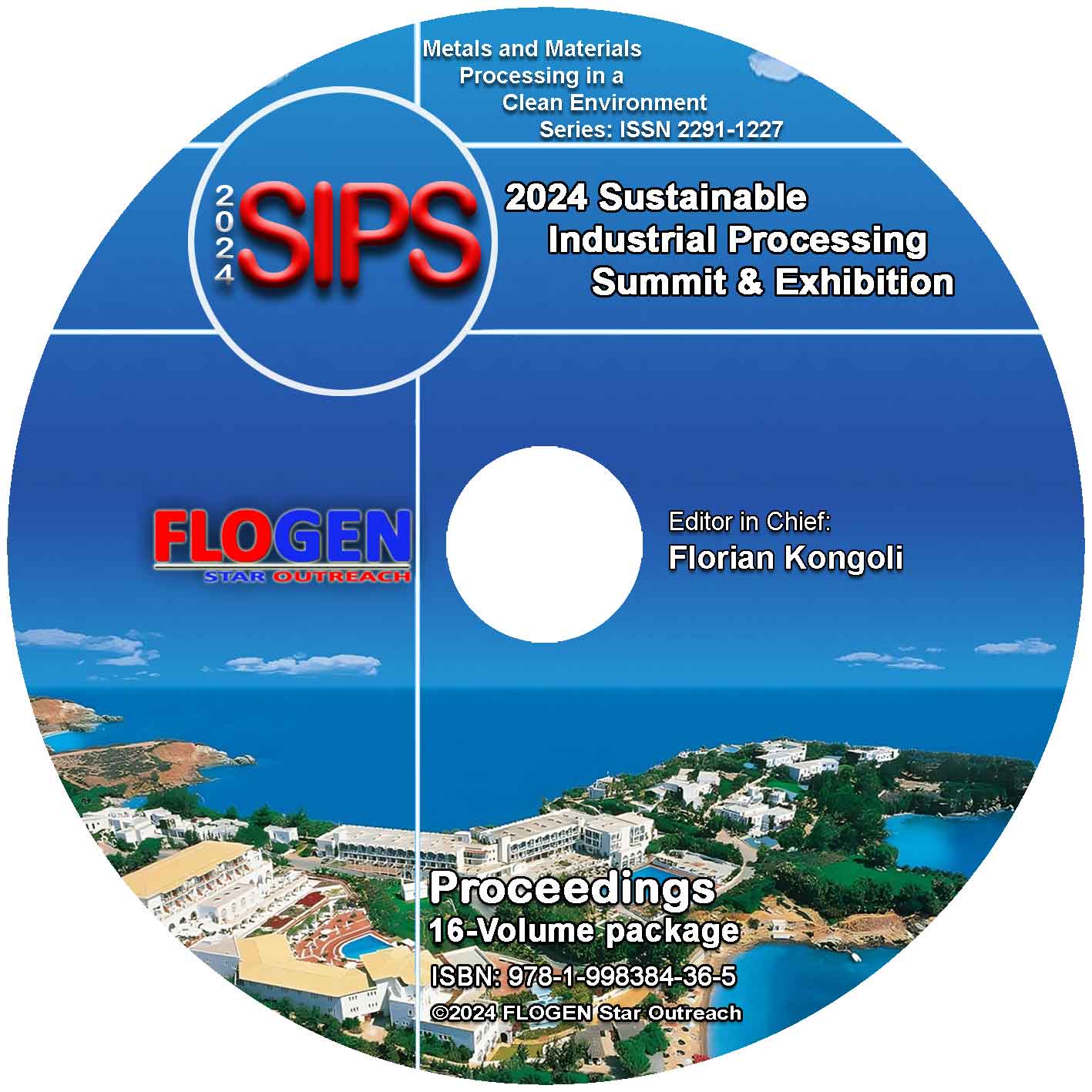2024 - Sustainable Industrial Processing Summit
SIPS 2024 Volume 9. Oktik Intl. Symp / Glass and Polymers Processing and Applications
| Editors: | F. Kongoli, B. Büyükfirat, V. Kapur, S. Tanabe |
| Publisher: | Flogen Star OUTREACH |
| Publication Year: | 2024 |
| Pages: | 172 pages |
| ISBN: | 978-1-998384-20-4 (CD) |
| ISSN: | 2291-1227 (Metals and Materials Processing in a Clean Environment Series) |

CD shopping page
MODEL ORDER-REDUCTION OF RECYCLED POLYMER BLOWING
David Ryckelynck1;1MINES PARIS PSL UNIVERSITY, Sophia Antipolis, France;
Type of Paper: Regular
Id Paper: 99
Topic: 72
Abstract:
The prediction of defect harmfullness in continuum mechanics requires the solution of partial differential equations with specified boundary conditions. In this work, fast reduced-order models are developed to understand defect harmfulness in recycled polymers undergoing a stretch blow moulding process. Polymers underconsideration are PET. Such a process is used in bottle-to-bottle recycling [1]. The space of all possible defects is defined using a non-parametric, data-driven approach that takes into account defects seen using an infrared camera. This space is very high dimensional.
The aim of this work is to develop a non-linear dimensionality reduction approach as proposed in [2] and [3], by using a scientific machine learning. Numerical results show that the proposed reduced order models have a large validity domain in the parameter space related to the mechanical behaviour of recycled polymers. They also show computational speed-ups of around 50 compared to conventional finite element predictions. Accelerated defect damage predictionscan be used to predict potential process quality degradation.